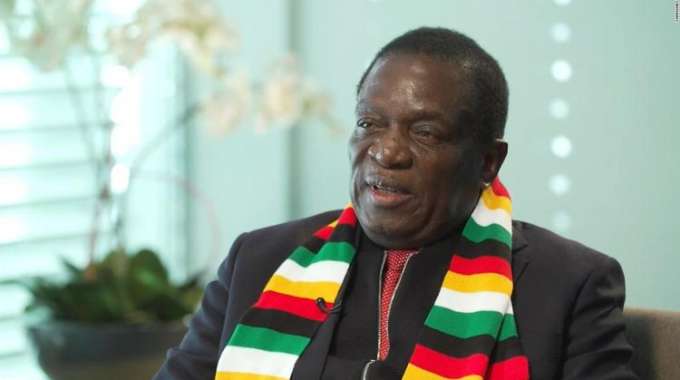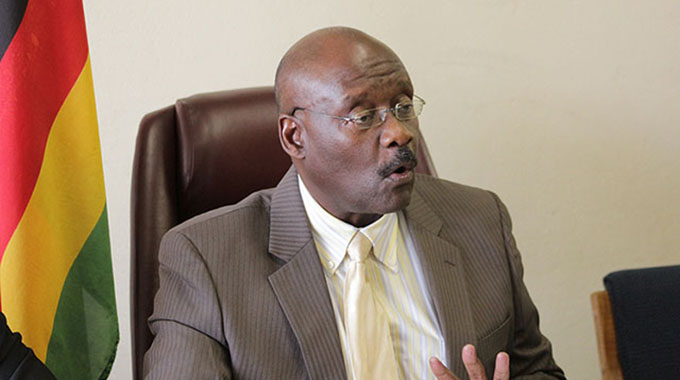The blessedness of forgiveness

Stephen Mpofu Correspondent
The bottom line of some, if not many, of the challenges that bedevil peace, stability and economic development in the world today can be traced back to the buck at the unforgiving hearts of political leaders embroiled in the contest for power and in some cases power for its own sake.
Yet, ironically, these same leaders know about the Lord’s prayer and make a huge meal out of the part that says: “Forgive us our trespasses as we forgive those who trespass against us, or forgive us our debts as we forgive our debtors . . .”
But these same self-righteous people still fail to follow through on the conditional “as we forgive those . . .” – an infraction on the promise they make to God, and so no humanity can expect to twist God’s arm and have his will done “on earth as it is in heaven”, in accordance with the prayer that Jesus Christ, the Son of God, taught his disciples and meant it to proliferate throughout humanity.
Today, Zimbabwe’s economy is struggling, with many of our people living from hand to mouth because of the illegal Western financial and economic sanctions imposed to try to effect regime change as punishment for the country’s land reform programme introduced in 2000 and under which land was being repossessed from some white “owners” for redistribution to blacks who needed that asset the most.
For nearly two decades, Britain, the former colonial power of this country, and the United States of America, both of which imposed the sanctions, supported by their cousins in continental Europe, dug their heads in the sand by refusing to forgive Zimbabwe for an agrarian revolution that was a culmination of the armed freedom struggle which recovered the motherland from an oppressive and racist foreign ruling culture.
The failure by the West to proliferate the forgiveness in the Lord’s prayer as a reciprocation of God’s own forgiveness suggests that those sworn enemies of this country stood to forfeit God’s forgiveness and the blessednesses that accompany God’s own condition for forgiveness.
Forgiveness brings about reconciliation, peace, stability, among other values that make societies progressive in their social, economic and political endeavours.
Of course, the countries that have damned Zimbabwe by refusing to reconcile with our nation may not admit it, but a careful study will show that they have not enjoyed the will of God or all the blessednesses that are derivatives of forgiveness.
On the other hand, Zimbabwe’s political leadership under the new dispensation has decided to let bygones be bygones by re-engaging the world in a bid to bring our economy back on even keel and has received within a period of less than six months investment commitments amounting to $11 billion, with still more potential investors from around the globe lining up to give Zimbabwe’s economy a new lease of life.
A few days ago, the European Union expressed its readiness and commitment to assist Zimbabwe in turning around this country’s economy under the new dispensation, with the country set to benefit, together with other African countries, from an ambitious external investment plan of the EU.
Also this week, President Mnangagwa announced that Zimbabwe’s two decades-long quarrel over land reform was over as the UK looked set to re-engage the country with the possibility of Zimbabwe rejoining the Commonwealth of former British colonies after walking away from the grouping under former president Robert Mugabe in protest at the rough treatment the country received at the hands of its former coloniser.
But even much more important, a huge manifestation of forgiveness should occur among Zimbabweans themselves.
Which is what the National Peace and Reconciliation Commission set up by the new administration is supposed to achieve.
Those who suffered “atrocities” under the Gukurahundi, or Fifth Brigade, which was unleashed to quell dissidents causing untold havoc in Matabeleland and in parts of the Midlands should forgive their fellow Zimbabweans in order for amity to reign in our country.
After the Adamic sin, God gave his only begotten son to this world to die on the cross in order for his blood to wash away our sins so that humanity could be reconciled with its Creator.
Thus the vertical beam on the cross represents the relationship between God and his people, while the horizontal beam stands for the relationship between, and among us, his creation.
Therefore, in the same way that God forgave the sins of humanity people are supposed to forgive each other for any wrong committed in accordance with the requirements of the Lord’s Prayer.
Zimbabweans boast of being a Christian nation, as well as being a top literate people on the African continent.
As such our leaders, or most of our people, must have memorised and recited the Lord’s Prayer at school or at church to know what it requires of us.
Still, ignorance of what the Lord’s Prayer demands of us is no defence whatsoever and God himself says in the Holy Bible that His people suffer as a result of their ignorance of what he expects of them.
In this respect the logos or words in the Lord’s Prayer amount to God’s eternal counsel in heaven and cannot be changed to suit human beings in this carnal world.
Therefore, what the above implies is that if people do not forgive one another as required in their horizontal relationships, God is not obliged and will not forgive their wrongdoings or sin.
The upshot of all this is that Zimbabweans in the Diaspora who continue to brandish axes at the new Government for sins it never committed are barking up the wrong tree and are at risk of discovering that the EDM express train is fully loaded and ready to depart, or has already departed, leaving them behind.
Those who have eyes to read or hear about current transformative changes in our country should blame no one for being left behind stranded, but their lackadaisical mindset in catching up with things in post-modernity Zimbabwe.







Comments